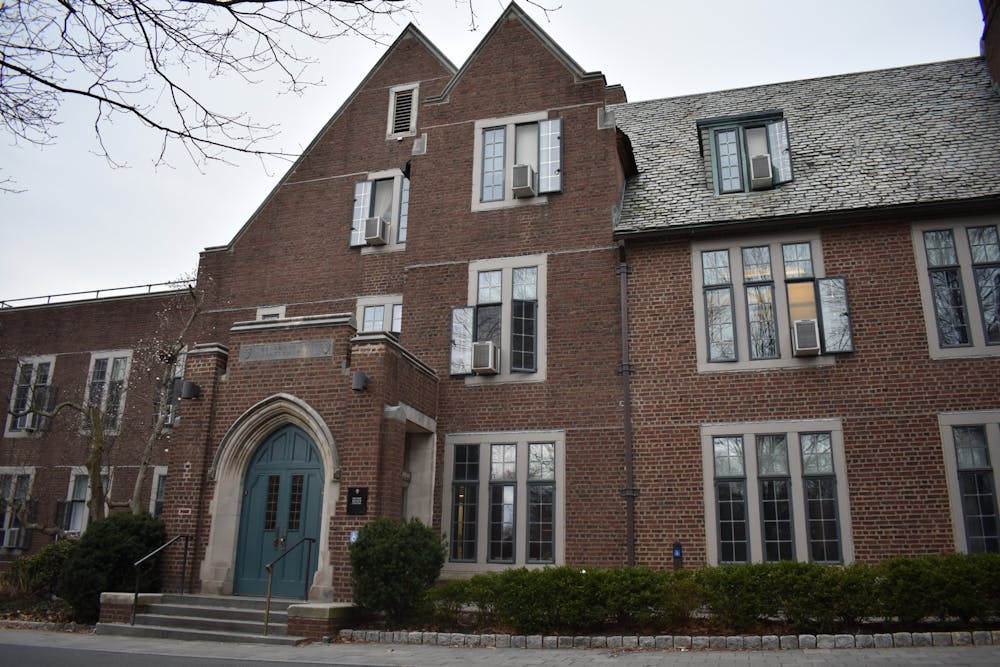Earlier this month, a group of students sent an email to all the listservs with a petition attached, urging the University to end its mask mandate. Due to the apparent decline of COVID-19 cases across the country and several states’ subsequent decisions to eliminate the mask mandate, some students have argued that Princeton should follow suit. However, considering people with different immune systems and the welfare of the student body overall, I think we should do otherwise.
The petition to end masking is a part of a larger discourse across campus, in which many individuals are questioning the overall effectiveness of COVID-19 regulations. Many are wondering if there’s a point in upholding restrictions when it’s clear that COVID-19 is not going to vanish anytime soon. Indeed — although deeply flawed and greatly inconsiderate — the growing sentiment that “we should start living like COVID-19 is in its endemic phase” and “everyone will get it at some point” is clear. And the lack of sufficient action by the University regarding the recent COVID-19 spike has, without a doubt, done nothing but enable the continued existence of this sentiment.
It is time we do away with this attitude, especially given that case counts are on the rise once again. It is problematic that people only seem to be blaming regulations, and not considering the student body’s behavior enough. This sole focus on the regulations essentially allows people to distance themselves from the problem. However, we are the ones who determine the welfare of the campus community, and we must do better to uphold these regulations.
Such a focus on policy, as well as on the possibility of COVID-19 endemicity, ignores the fact that COVID-19 impacts people with varying immune systems differently and that the future is uncertain. To echo The Atlantic columnists Jacob Stern and Katherine J. Wu’s words, “there are zero guarantees on how or when we’ll reach endemicity, or whether we’ll reach it at all,” and “even if we could be certain that endemicity was on the horizon, that assuredness doesn’t guarantee the nature of our post-pandemic experience of COVID.”
In contrast to the argument that COVID-19 regulations are unnecessarily restrictive, I want to stress that we should be doing much more to prevent the spread of COVID-19. To reemphasize the Editorial Board, we must provide more accommodations to those who are immunocompromised and who feel at risk with the relaxed safety measures. Providing satisfactory virtual or hybrid options should not be impossible, especially when considering the number of people in isolation housing right now.
In a similar vein, we should be looking to move midterms online wherever possible, or at least give students the option to take their exams virtually. Again, with the number of people in isolation, some classes are likely already figuring out alternatives for students who are unable to attend classes and exams in person. With spring break right around the corner, we shouldn’t just hope and pray that cases hit a plateau and start to decline. I’m sure that many people would hate to be sick with COVID-19 and in isolation during the break.
Additionally, if the recent spike can be traced to eating clubs and athletic teams, then we need more preventative measures for such groups. We should look to implementing proper ventilation systems to help reduce contamination. Also, it would be beneficial to ensure that all students use KN95 and N95 masks, which have been proven to provide the best protection against COVID-19, and have been made accessible to students.
Additionally, considering the discourse surrounding eating clubs and COVID-19, in particular, the argument of “if you feel unsafe or uncomfortable, don’t participate in any social events” is not adequate. The student population is not separated into those who attend these events and those who don’t; whether you participate in such activities or not, you will likely come into contact with those who did participate. Those who are exposed will continue to go to classes and interact with the rest of the student body. So it is clear that more preventative measures have become the most promising solution.

Near the end of the anti-mask mandate group’s call to action, they assert that “Princeton must end its obsolete pandemic rules and allow students, faculty, and staff to return to a full, complete sense of normalcy, which we haven’t experienced since March 2020.” But the truth is that such a “sense of normalcy,” reminiscent of those times before the pandemic, is not possible anymore. There is too much at stake, and we don’t know how COVID-19 will impact the health of our community or the way that we interact with one another — academically and non-academically.
So, for the sake of our community, we must remember that the pandemic hasn’t reached the point where those who contract COVID-19 will face minimal disruptions in their day-to-day life. And with this outlook in mind, we must consider more preventative measures and safety accommodations.
Gisele Bisch is a first-year from the North Shore of Oʻahu (Hawai‘i) who plans to concentrate in Anthropology on the Sociocultural Track. She can be reached at gb8528@princeton.edu.









